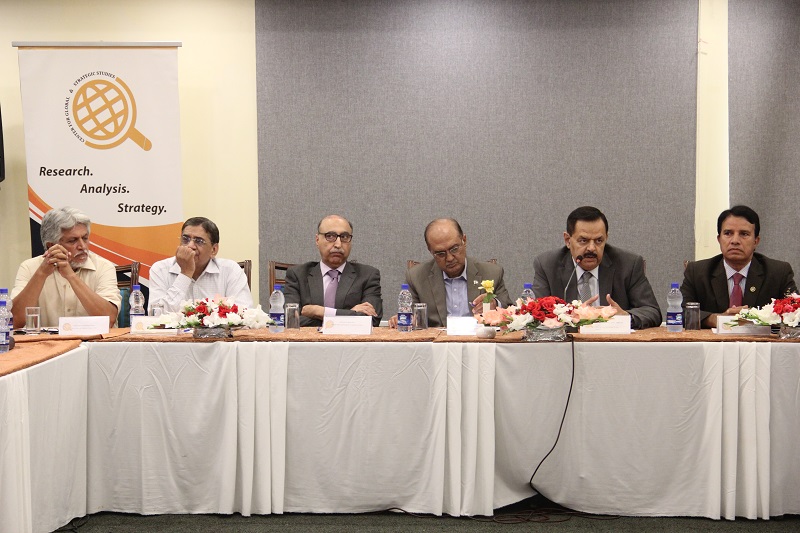ISLAMABAD, Pakistan: The Center for Global & Strategic Studies (CGSS) on Wednesday organized a Roundtable Session on “The Genesis of Kashmir Issue” at Islamabad Club in Islamabad.
With his opening remarks by the President CGSS Major General (retd) Syed Khalid Amir Jaffery commenced the Session, in which he thanked all the worthy participants and stressed on the importance of such discussion in aiding the process of policymaking.
The Session was addressed by various prominent academic and diplomatic personalities, and the event marked attendance of 30 people.
Prominent speakers among them included the former Federal Defence Minister of Pakistan Lieutenant General (retd) Naeem Khalid Lodhi, the former High Commissioner of Pakistan to India Ambassador Abdul Basit, the former Federal Secretary of Information and Broadcasting and Member Advisory Board CGSS Ashfaq Ahmed Gondal, the Senior Member Advisory Board CGSS Ambassador Amjad Majid Abbasi, and the Professor at the Department of Politics and International Relations (IR) in International Islamic University Islamabad (IIUI) Dr Muhammad Khan.
The agenda of the session was to highlight the historical background and facts of the Kashmir conflict and how we can move forward with these facts. Presently, the efforts made by the Pakistani government were acknowledged by the participants but they all agreed on the point that much more needs to be done.
It was discussed that we need a policy that covers the legal, political, diplomatic and military aspects in dealing with the Kashmir conflict. Up till now, we have focused on diplomatic solutions of the conflict but India has not reciprocated any offer by Pakistan to come on the dialogue table. India has very shrewdly planned the revocation of article 370. The purpose behind this action is to change the demographics of the valley and turn it into a state of Indian union territory. The international community’s response has been luke warm till now on the prevailing scenario in occupied Kashmir. This is because international community has economic, political and strategic interests in India. So far the steps taken by the government are satisfactory but clarity in the direction of the policy is required to achieve any concrete results. The policy options which were discussed by the participants included further enhancing our diplomatic efforts with precision. If pushed towards war we should not hesitate in responding with the full force. The world must provide Kashmiris with humanitarian assistance and aid under the respective United Nations resolutions.
The people of the Indian Occupied Kashmir are looking towards us for assistance in providing them with the chance to exercise their right of self-determination. It’s time that we act in a mature way and formulate an effective policy regarding the resolution of this conflict.




